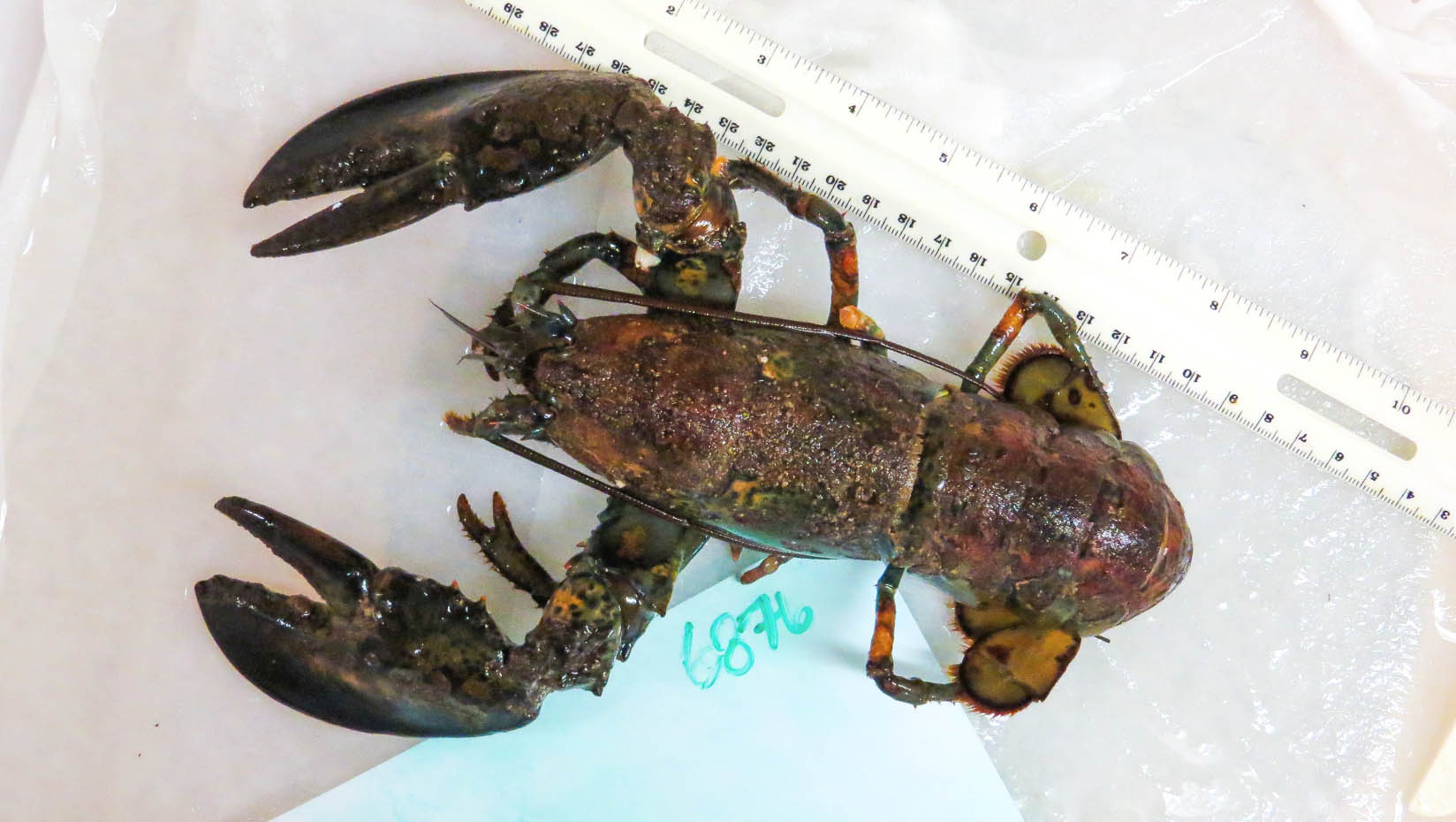
UMaine shows water temperature impacts bacteria present on lobsters shells
The health of Maine lobsters is always top of mind, and is becoming even more tenuous as the climate warms and changes the dynamics of ocean ecosystems. A University of Maine study found that the bacteria present on lobster shells is highly dependent on water temperature, indicating that climate change may have a direct impact on this important element of lobster’s health.
Populations of American lobster, Homarus americanus, have declined in southern locations along the North Atlantic coast in recent decades due to increasing ocean temperatures and disease. Such circumstances are progressing northward toward Maine as the climate continues to warm, so it is becoming even more pressing to pinpoint the exact causes of this decline, especially given the complexities of crustacean physiology and immunology.
“Studying these shell bacteria can help us understand how bacteria might impact lobster health, and how the environment can affect which bacteria end up on shells at all. Even if those bacteria are just along for the ride, we hope that studies like these will help us understand the complicated relationship between animals, their environment, microbes and health,” says Sue Ishaq, lead author of the publication and UMaine assistant professor of animal and veterinary sciences.
The researchers monitored 57 adult female lobsters, some which were healthy and some that exhibited epizootic shell disease, which causes erosion of the carapace that has been spreading up the North Atlantic coast over the last two decades. They looked at the subjects under three seasonal temperature cycles, each three months apart over the course of a year, and tracked the lobsters’ shell bacterial communities using culturing and gene sequencing. The scientists also monitored the progression of the shell-diseased lobster visually and also analyzed the antimicrobial activity of hemolymph, the fluid equivalent of blood in the crustaceans.
The results showed that the number of different species of bacteria and the abundance of bacteria in general were lower in warmer water, but being in cooler water didn’t increase the diversity of bacteria significantly. Temperature wasn’t solely responsible for the death of diseased lobsters, and some bacteria were found on all shells regardless of health status. However, several bacteria were prevalent on healthy lobster shells but missing or less abundant on diseased shells, which could indicate that shell-disease could cause the loss of a bacteria with a symbiotic relationship to lobster health.
“Living for almost a year in tanks with warmer water decreased the number of different types of bacteria on lobster shells, but the ones that remained grew better in the lab. We were surprised to find that the lobsters living in tanks with colder water, which was the optimal temperature for lobsters, did not bring the shell bacterial community back to the diverse level it had been when we first caught these lobsters in the ocean,” Ishaq says.
Ishaq conducted the study with scientists from several different departments on campus, including M. Scarlett Tudor, education and outreach coordinator at the UMaine Aquaculture Research Institute (ARI); Deborah Bouchard, director of ARI; Heather Hamlin, director of the School of Marine Sciences; and Jean MacRae, associate professor in the Department of Civil and Environmental Engineering. The research team also included Sarah Turner, Ph.D. candidate in aquaculture and aquatic resources, and Grace Lee, a former Bowdoin College undergraduate who had been participating in the Research Experience for Undergraduates (REU) program.
“Having a team with so many different areas of expertise helped us look at this complicated problem from multiple angles, and in addition to generating useful knowledge for the Maine community we were able to include student trainees who will be the next generation of interdisciplinary researchers,” Ishaq says.
The study is now published in iScience, and became available online April 8, 2023.
Contact: Sam Schipani, samantha.schipani@maine.edu
